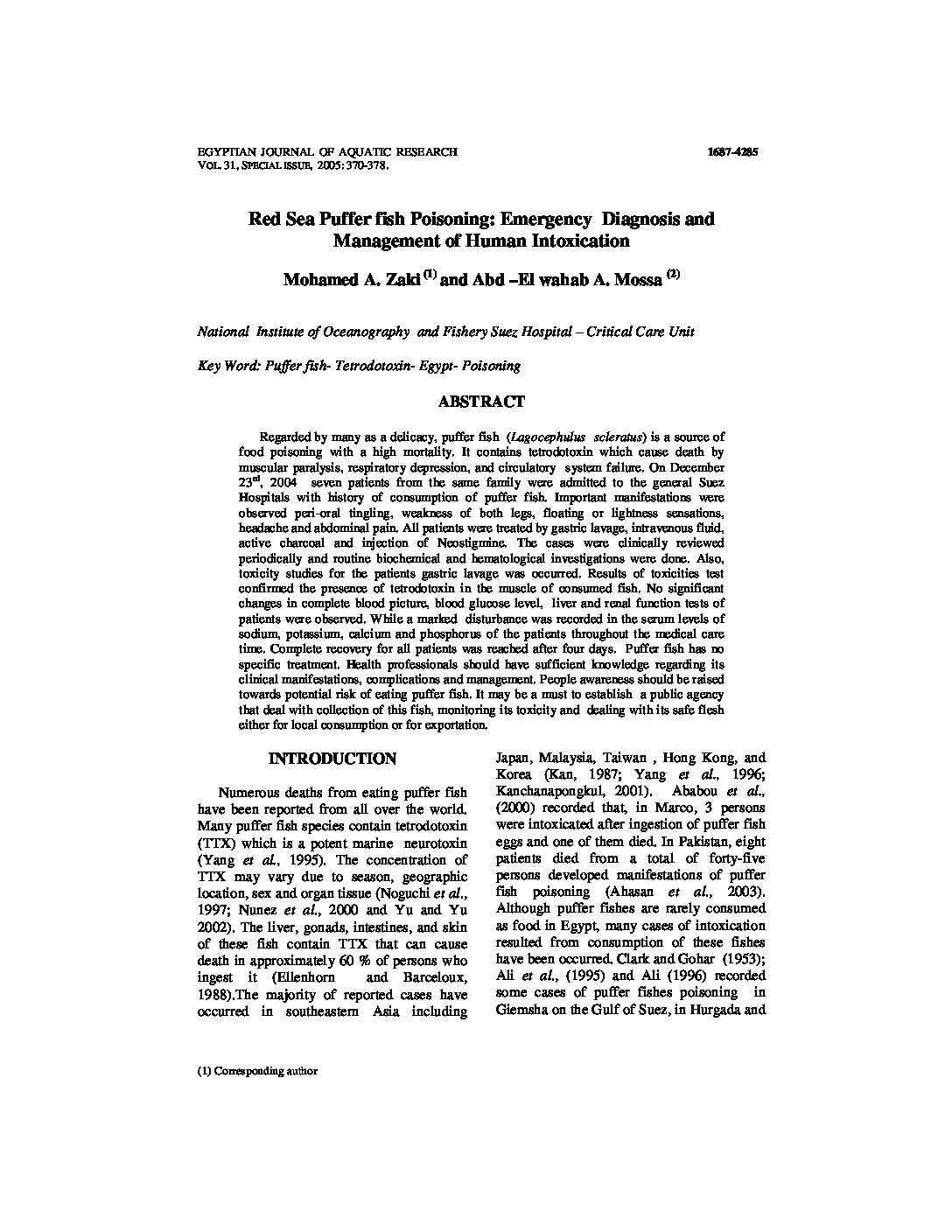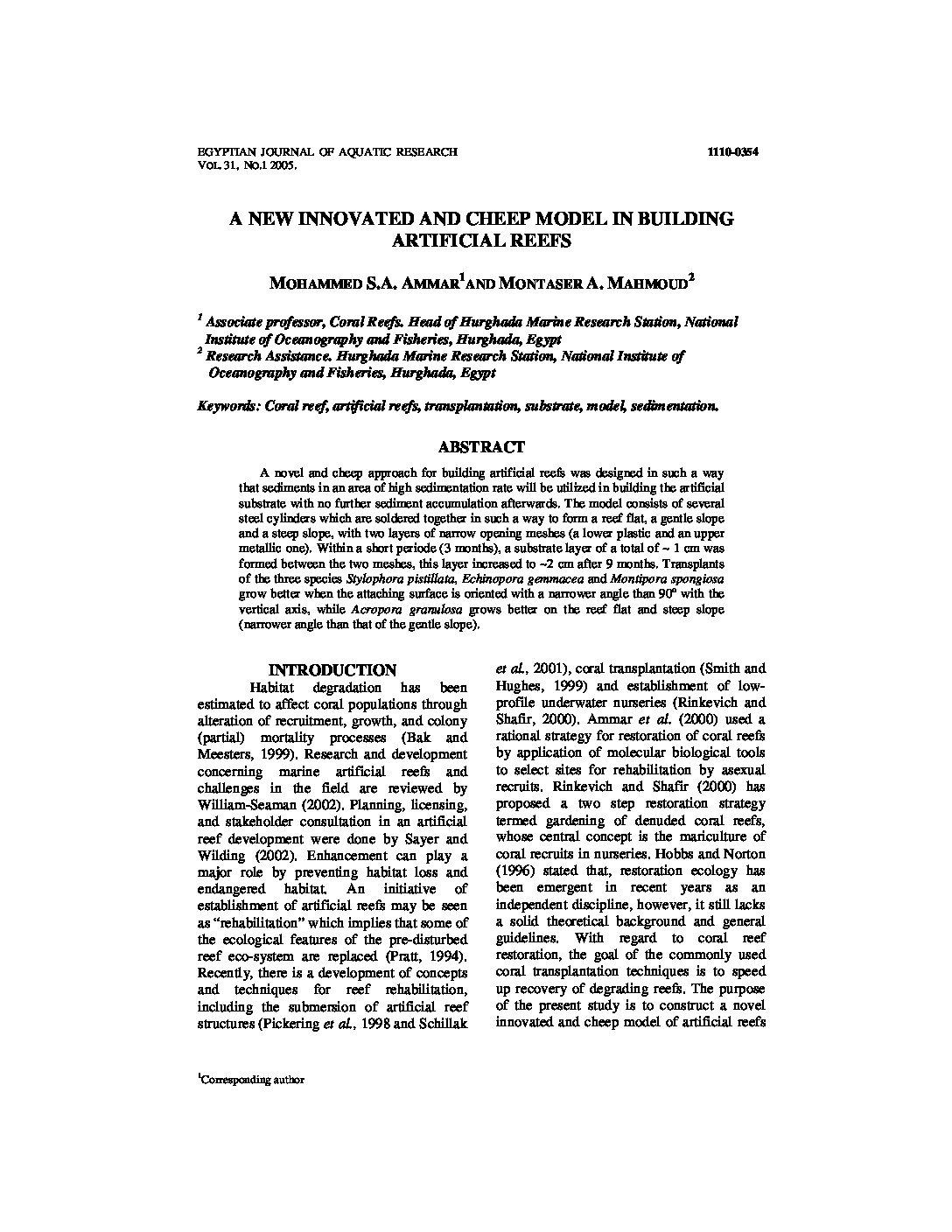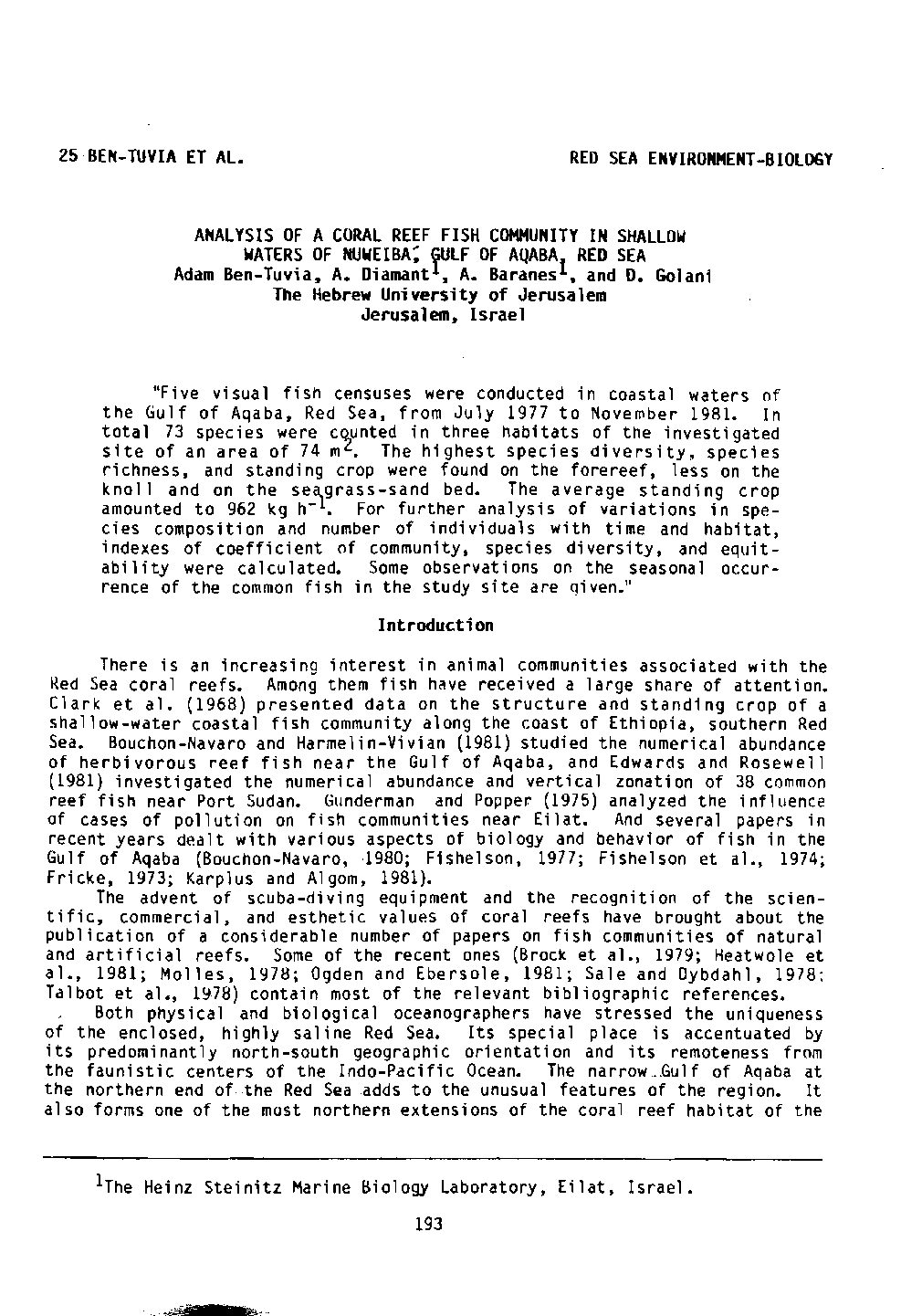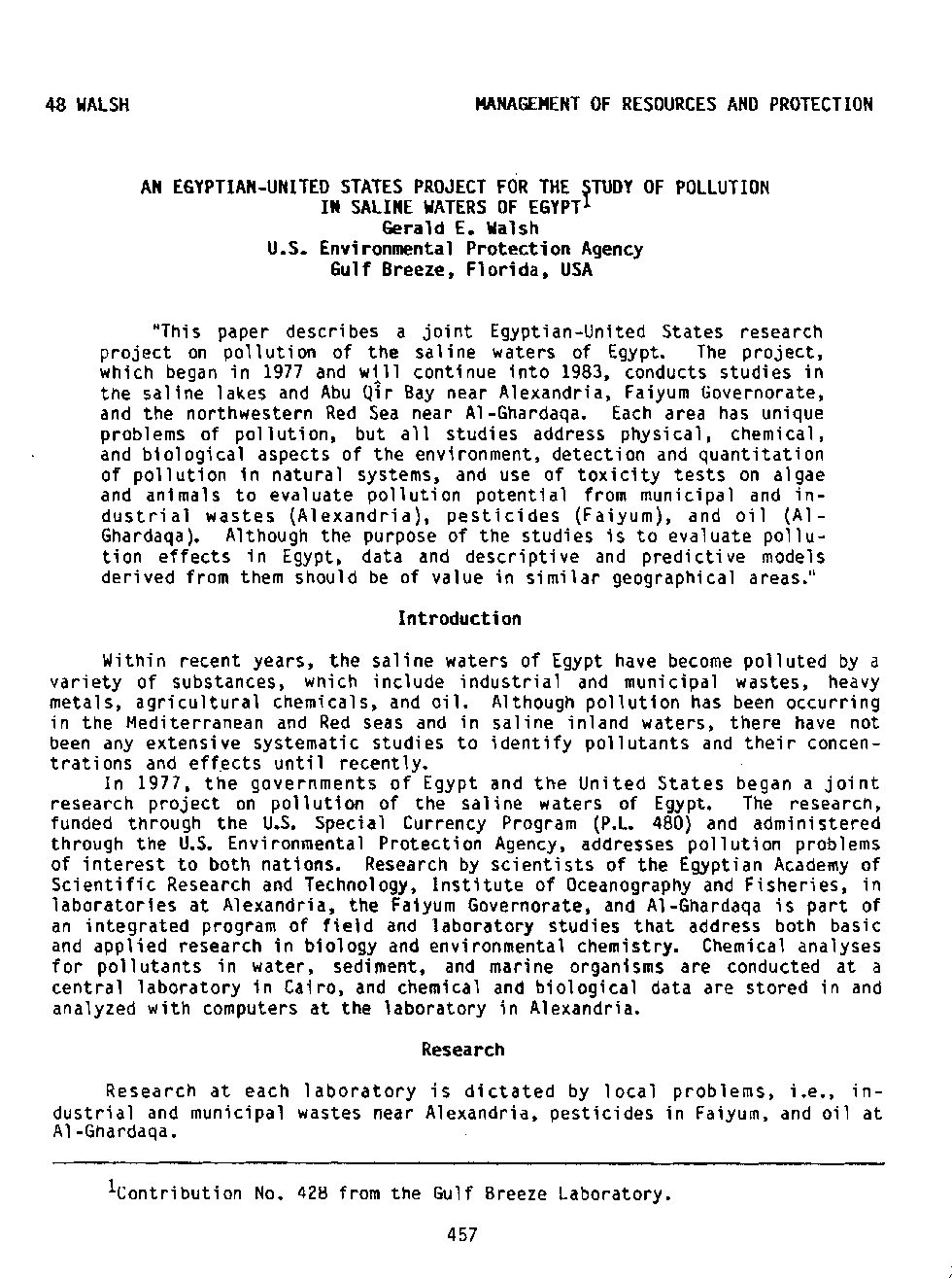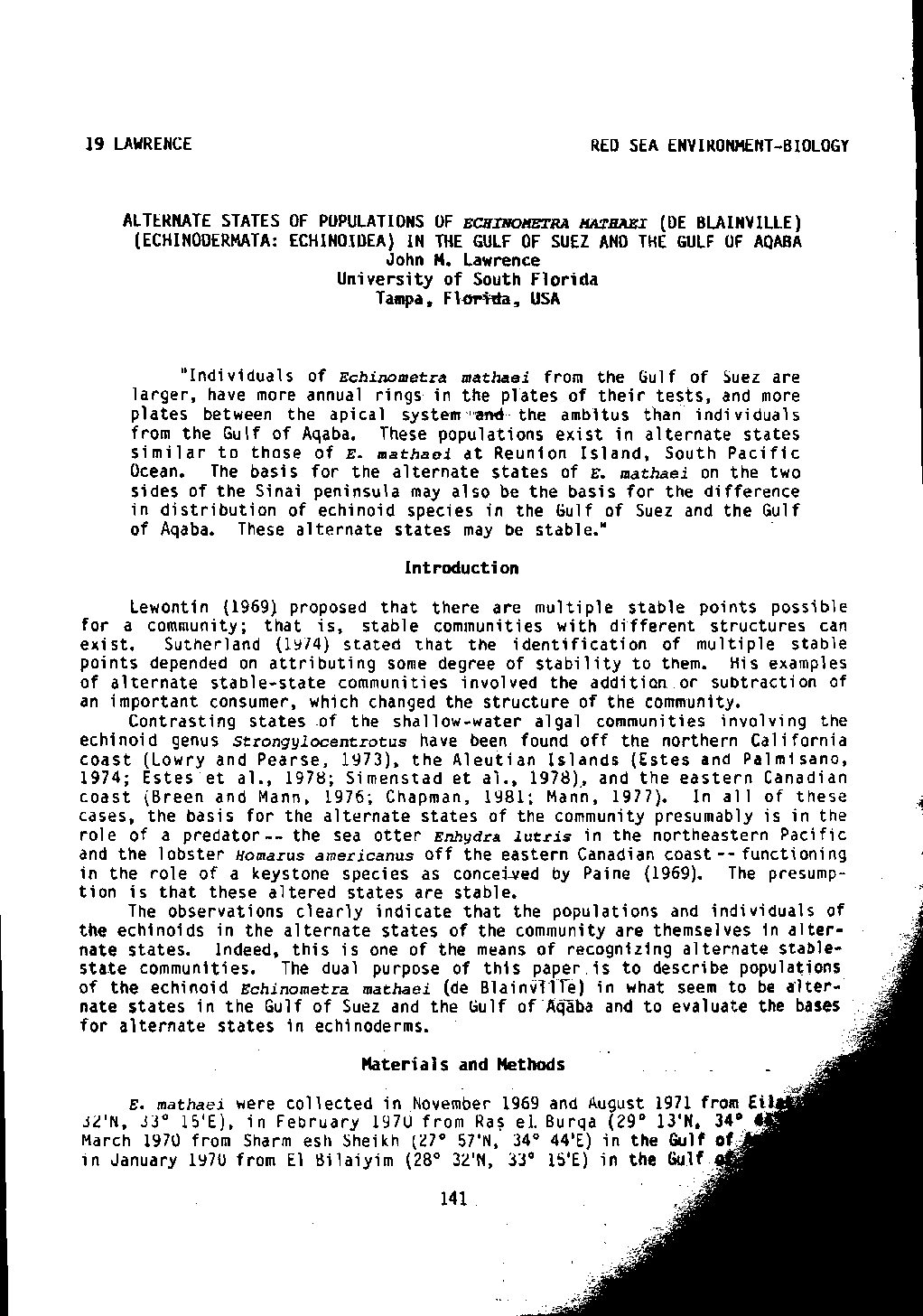Categories
vol-31Red Sea Puffer fish Poisoning: Emergency Diagnosis and
Management of Human Intoxication
Mohamed A. Zaki
1)
and Abd –El wahab A. Mossa
(2)
National Institute of Oceanography and Fishery Suez Hospital – Critical Care Unit
Key Word: Puffer fish- Tetrodotoxin- Egypt- Poisoning
ABSTRACT
Regarded by many as a delicacy, puffer fish (Lagocephulus scleratus) is a source of
food poisoning with a high mortality. It contains tetrodotoxin which cause death by
muscular paralysis, respiratory depression, and circulatory system failure. On December
23
rd
, 2004 seven patients from the same family were admitted to the general Suez
Hospitals with history of consumption of puffer fish. Important manifestations were
observed peri-oral tingling, weakness of both legs, floating or lightness sensations,
headache and abdominal pain. All patients were treated by gastric lavage, intravenous fluid,
active charcoal and injection of Neostigmine. The cases were clinically reviewed
periodically and routine biochemical and hematological investigations were done. Also,
toxicity studies for the patients gastric lavage was occurred. Results of toxicities test
confirmed the presence of tetrodotoxin in the muscle of consumed fish. No significant
changes in complete blood picture, blood glucose level, liver and renal function tests of
patients were observed. While a marked disturbance was recorded in the serum levels of
sodium, potassium, calcium and phosphorus of the patients throughout the medical care
time. Complete recovery for all patients was reached after four days. Puffer fish has no
specific treatment. Health professionals should have sufficient knowledge regarding its
clinical manifestations, complications and management. People awareness should be raised
towards potential risk of eating puffer fish. It may be a must to establish a public agency
that deal with collection of this fish, monitoring its toxicity and dealing with its safe flesh
either for local consumption or for exportation.
